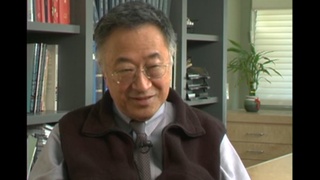Interviews
Being stationed in Japan during the American occupation
They (the Japanese) have great respect for us (Japanese Americans) because it was easy for them to communicate with us and the fact that we spoke Japanese and can communicate with them, they preferred us than dealing with Americans. The Americans were much more impersonal, cold, whereas we could be much more compassionate with them. And also, at that time, there was lack of food and lack of everything including cigarettes, and they smoked a great deal, the Japanese at that time. So we used to give them. We received every week from our unit, a ration of one carton of cigarettes, and also six Babe Ruth candies. So the cigarettes we gave as a gift to our friends and also in connection to our work to get intelligence. The candies we gave to the children at church or wherever. They enjoyed the candies a great deal because everything was short [in supply] in Japan especially sugar was very expensive and short.
Date: May 29, 2006
Location: Hawai`i, US
Interviewer: Akemi Kikumura Yano
Contributed by: Watase Media Arts Center, Japanese American National Museum









